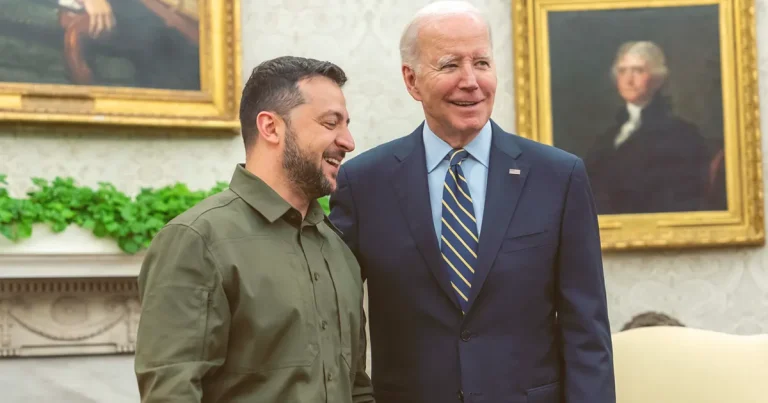18-11-2024 (WASHINGTON) In a dramatic shift of military policy weeks before a presidential transition, the Biden administration has authorised Ukraine to employ US-manufactured weapons for long-range strikes within Russian territory, according to three sources with knowledge of the decision.
The landmark policy change, revealed by two US officials and another informed source, comes as Ukraine prepares to launch its initial long-range operations in the immediate future. The tactical details remain classified due to security considerations.
This pivotal decision arrives against the backdrop of President-elect Donald Trump’s impending inauguration in January and follows persistent appeals from Ukrainian President Volodymyr Zelenskyy for permission to target Russian military installations beyond Ukraine’s borders. Sources indicate the policy shift was primarily triggered by Russia’s recent deployment of North Korean ground forces to supplement its military operations.
Responding to media reports, Zelenskyy maintained operational discretion in his evening address: “Strikes are not made with words. Such things are not announced.”
The decision has already provoked a stern warning from Moscow. Vladimir Dzhabarov, first deputy head of the Russian upper house’s international affairs committee, cautioned through TASS news agency that such actions could trigger World War Three and warrant immediate retaliation.
Military sources indicate Ukraine’s initial deep strikes will likely utilise ATACMS rockets, capable of reaching targets up to 306 kilometres away. While some US officials remain sceptical about the strategic impact of this decision, others suggest it could strengthen Ukraine’s position in potential future ceasefire negotiations.
The policy shift coincides with reports of significant Russian military advances, reportedly their most rapid since 2022, and confirmation of North Korean troop deployments to the Kursk region. US intelligence estimates that over 10,000 North Korean soldiers have been dispatched to eastern Russia.
Alex Plitsas, senior non-resident fellow at the Atlantic Council, characterised the decision as overdue: “Removing targeting restrictions will allow the Ukrainians to stop fighting with one hand tied behind their back. However, like everything else, I believe history will say the decision came way too late.”
The White House and State Department have declined to comment on the development, while Trump’s campaign has not responded to enquiries about whether the incoming administration would maintain this policy. However, Richard Grenell, a close Trump foreign policy adviser, criticised the move as an escalation of conflicts before Biden’s departure.
Polish Foreign Minister Radoslaw Sikorski framed the decision as a direct response to North Korea’s involvement, stating on social media that Biden “responded to the entry of North Korean troops into the war… in a language that V Putin understands.”




